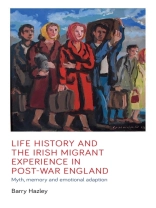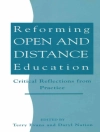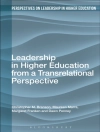What role does memory play in migrants’ adaption to the emotional challenges of migration? How are migrant selfhoods remade in relation to changing cultural myths? This book, the first to apply Popular Memory Theory to the Irish Diaspora, opens new lines of critical enquiry within scholarship on the Irish in modern Britain. Combining innovative use of migrant life histories with cultural representations of the post-war Irish experience, it interrogates the interaction between lived experience, personal memory and cultural myth to further understanding of the work of memory in the production of migrant subjectivities. Based on richly contextualised case studies addressing experiences of emigration, urban life, work, religion, and the Troubles in England, chapters shed new light on the collective fantasies of post-war migrants and the circumstances that formed them, as well as the cultural and personal dynamics of subjective change over the life course. At the core of the book lie the processes by which migrants ‘recompose’ the self as part of ongoing efforts to adapt to the transition between cultures and places.
Life history and the Irish migrant experience offers a fresh perspective on the significance of England’s largest post-war migrant group for current debates on identity and difference in contemporary Britain. Integrating historical, cultural and psychological perspectives in an innovative way, it will be essential reading for academics and students researching modern British and Irish social and cultural history, ethnic and migration studies, oral history and memory studies, cultural studies and human geography.
สารบัญ
Introduction: Myth, memory and emotional adaption: the Irish in post-war England and the ‘composure’ of migrant subjectivities
1 Narratives of exit: the public meanings of emigration and the shaping of emigrant selves in post-war Ireland, 1945-69
2 In-between places: liminality and the dis/composure of migrant femininities in the post-war English city
3 Lives in re/construction: myth, memory and masculinity in Irish men’s narratives of work in the British construction industry
4 Falling away from the Church? Negotiating religious selfhoods in post-1945 England
5 Nothing but the same old story? Otherness, belonging and the processes of migrant memory
Conclusion: Myth, memory and minority history
Appendix: Interviews
Select bibliography
Index
เกี่ยวกับผู้แต่ง
Barry Hazley is Derby Fellow in the Institute of Irish Studies, University of Liverpool and AHRC Research Fellow in History at the University of Manchester












